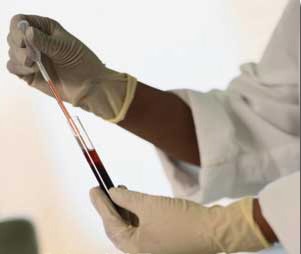来自中科院大连化学物理研究所,第二军医大学等处的研究人员发展了基于糖蛋白固载的无标记定量蛋白质组学技术,并应用于肝癌临床诊断标志物的初步筛选中,发现了一系列在肝癌血清中异常表达的糖基化蛋白。这一研究成果公布在蛋白质组学领域刊物《分子与细胞蛋白质组学》(Molecular & Cellular Proteomics)上。

研究发现肝癌血清中异常糖基化蛋白
这项研究由第二军医大学王红阳院士研究组,与中科院大连化学物理研究所邹汉法研究组合作完成,其中王红阳院士早年毕业于第二军医大学,是教育部“长江学者奖励计划”特聘教授,中国工程院院士。长期从事肿瘤的基础与临床研究,对肿瘤的跨膜信号转导、肝癌新分子标志物鉴定及应用、酪氨酸磷酸酶的网络调控研究等有重要建树。
蛋白质糖基化是目前已知的最为复杂的翻译后修饰之一,与癌症的发生密切相关,目前已知的诊断标志物都是糖基化蛋白质。然而,由于糖基化位点存在微观不均一性,传统的基于糖肽的定量方法不能准确的反映生物样品中糖基化蛋白的表达水平。
在这篇文章中,研究人员发展了新型的基于非糖肽的定量蛋白质组学技术,较好地解决了高通量糖基化蛋白定量中的准确性和可靠性问题,并将这一方法运用于肝癌临床诊断差异表达定量蛋白质组学分析中,发现了一系列在肝癌血清中异常表达的糖基化蛋白,采用传统的基于抗体的ELISA方法对其中的3个糖蛋白质进行大样本量(50-100个临床样品)的验证,进一步证明了所发展的方法对糖蛋白质组学定量分析的可靠性。这一方法的发展不仅为疾病蛋白质组学的研究提供了新的技术途径,而且也筛选出一系列可供临床验证的差异糖基化蛋白质。
除此之外,近期来自斯坦福大学医学院等处的研究人员还利用一种高精度蛋白质组学,识别出了与Jourbert综合症(Joubert syndrome, JS)等疾病相关的基因。这一发现加深了人们对JS这种病的认识和了解。这种基因的发现将让研究人员进一步了解大脑、视网膜和肾脏的发育,更好地了解正常和异常的大脑并最终找到治疗相关疾病的有效方法。
生物探索推荐英文论文摘要:
Expand+Development of glycoprotein capture based label-free method for the high-throughput screening of differential glycoproteins in hepatocellular carcinoma
A robust, reproducible and high throughput method was developed for the relative quantitative analysis of glycoprotein abundances in human serum. Instead of quantifying glycoproteins by glycopeptides in conventional quantitative glycoproteomics, glycoproteins were quantified by non-glycosylated peptides derived from the glycoprotein digest, which consists of the capture of glycoproteins in serum samples and the release of non-glycopeptides by trypsin digestion of captured glycoproteins followed by two dimensional LC-MS/MS analysis of released peptides. Protein quantification was achieved by comparing the spectrum counts of identified non-glycosylated peptides of glycoproteins between different samples. This method was demonstrated to have almost the same specificity and sensitivity in glycoproteins quantification as capture at glycopeptides level. The differential abundance of proteins present at as low as ng/ml levels was quantified with high confidence. The established method was applied to the analysis of human serum samples from healthy people and patients with hepatocellular carcinoma (HCC) to screen differential glycoproteins in HCC. Thirty eight glycoproteins were found with substantial concentration changes between normal and HCC serum samples, including alpha-fetoprotein (AFP), the only clinically used marker for HCC diagnosis. The abundance changes of three glycoproteins, i.e., galectin-3 binding protein, insulin-like growth factor binding protein 3 and thrombospondin 1, which were associated with the development of HCC, were further confirmed by enzyme-linked immunosorbent assay. In conclusion, the developed method was an effective approach to quantitatively analyze glycoproteins in human serum and could be further applied in the biomarker discovery for HCC and other cancers.







